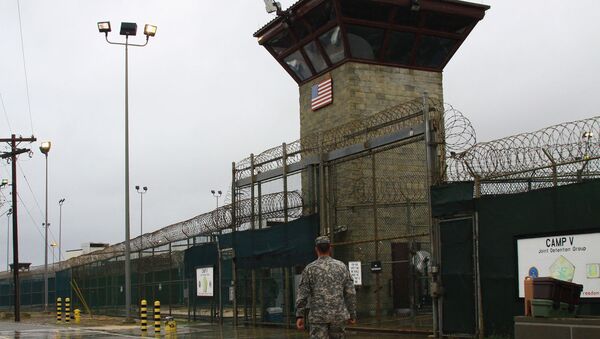MOSCOW, October 3 (RIA Novosti) - A federal judge has rejected the US government's "deeply troubling" appeal to make the first hearing on force-feedings in Guantanamo secret.
"With such a long-standing and ongoing public interest at stake, it would be particularly egregious to bar the public from observing the credibility of live witnesses, the substance of their testimony, whether proper procedures are being followed, and whether the Court is treating all participants fairly," US District Court Judge Gladys Kessler wrote in an order issued on Thursday.
According to Kessler, the US Government has failed to prove the necessity of closed hearings and "seems to have forgotten" about the presumption of openness.
She stated that the request to close the hearings had been made deliberately late and described it as "deeply troubling."
Addressing the government's claims that an open hearing would threaten national security by risking disclosure of classified information, Kessler wrote that "a great deal" of the documentary evidence had already been made public, and "to the extent it has not, its submission can be bifurcated into public and closed proceedings."
In prior hearings, the Court has dealt "carefully and professionally" with classified information and "the courtroom has been sealed without any problems," the judge stated.
On September 25, Obama administration filed a motion to completely close the Preliminary Injunction Hearing on the case of Guantanamo Bay detainee Abu Wa'el Dhiab, a Syrian national who has been imprisoned since 2002 and cleared for release since 2009. Hearings on Dhiab's case are set to begin on October 6.
Dhiab is challenging the US military's practice of forcible cell extractions and force-feeding of detainees, which involves the use of physical restraints to immobilize hunger strikers without their consent and compel them to take food through nasal tubes.
The United Nations Human Rights Council has deemed the practice as torture, while the World Medical Association has stated that "forced feeding contrary to an informed and voluntary refusal is unjustifiable."


